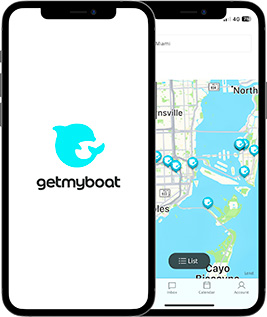All GetMyBoat operators are required to operate legally within and fully compliant with local guidelines — this includes obtaining proper registrations, passes, permits, etc., meeting vessel and captain requirements, using the correct docks and boating areas for commercial activities, and any other stipulations by your local laws and facility regulations. To help, we have gathered the following essential details for boating in the province of British Columbia.
Safety Requirements:
- Safety equipment including Lifejackets, Visual Signals, Lifebuoys, Sound Signaling devices, Navigation Equipment, Fire Fighting Equipment, and Reboarding Devices must be onboard. A full list of required safety equipment for pleasure craft can be found in the Safe Boating Guide.
- All safety equipment must be in good working order, readily accessible, and maintained.
- Commercial vessels are required to carry additional safety equipment on board. Commercial Vessel Operators should review the Small Commercial Vessel Safety Guide for the safety requirements that apply to your operation.
- Ensure your client understands how to operate the boat safely, including rules of the road and other safe boating practices. Provide clients with information about the area that they are boating including any known hazards.
- Ensure your vessel is well-maintained and operational. If renting a pleasure craft, provide clients with a basic safety orientation, including the boat’s equipment and features, limits, and operational requirements.
- Commercial vessel operators must ensure safe procedures, crew training, and maintenance of training records.
- Commercial vessels are required to carry additional safety equipment on board.
- Vessel operators handling radios must possess appropriate radio operator certificates.
Commercial Insurance: Looking to secure commercial insurance for your vessel? GetMyBoat has partnered with Boat Charter Insurance, which services operators in Canada. You can request a quote here.
Environmental Regulations:
- All vessels must comply with government rules based on boat type, class, and size to ensure safety and proper functioning.
- All motorized boats must have an approved and operational muffler to reduce engine noise.
- There is a universal shoreline speed restriction of 10 km/hr within 30 meters of shore on all inland waterways in BC.
- Sewage can cause harm to human health and the environment. You can never discharge sewage within inland waters (rivers and lakes). You must have proper sewage management onboard your vessel and comply with the Vessel Pollution and Dangerous Chemical Regulations.
Vessel Registration or Licensing:
- Any vessel with an engine of 10hp or more must be licensed or registered.
- Recreational pleasure craft must have a Pleasure Craft License Number (PCL) unless registered.
- Commercial vessels must be registered.
- Small commercial vessels under 15 gross tons engaged in fishing, passenger transportation, or cargo shipping must be registered under the Small Vessel Register (SVR).
- Large commercial vessels over 15 gross tons or involved in certain international activities should be registered under the Canadian Register of Vessels (CRV).
- Numbers related to licensing or registration must be visibly marked on your boat.
- License or registration paperwork must be carried onboard your boat.
Pleasure Craft Operator Card:
- All boat operators are required to demonstrate proof of competency. The Pleasure Craft Operator Card (PCOC) is proof of competency for pleasure craft.
- A detailed signed and dated Rental Safety Checklist can be completed to meet the proof of competency requirements. A rental boat safety checklist can serve as proof of competency for the rental period only.
- Horsepower restrictions apply to operators under 16 years of age and must be followed.
- Carry a copy of your Government Photo ID along with your proof of competency.
Operator Certification:
- Small Vessel Operator Proficiency (SVOP) is required for operators of small commercial vessels under 5 gross tons in near-coastal voyages.
- Crew members of non-pleasure vessels must have certifications in first aid, operator competency, and basic safety training, specific to vessel type, size, and voyage class.
Pleasure Craft Rental Resources:
- Transport Canada offers a free online Rental Boat Safety Course. This online course was developed to educate individuals interested in renting their pleasure craft.
- Transport Canada’s Rental Agency Best Practise Website and Rental Boat Safety Checklist Standard are other resources that inform boat renters of their responsibilities and obligations.
- Transport Canada provides examples of Rental checklists for individuals who rent out their pleasure craft.
Inspection by Transport Canada:
- Vessels with a gross tonnage range of 15 to 150 must undergo inspection and certification by Transport Canada.
- Small non-pleasure vessels carrying over 12 passengers are also subject to inspection and certification.
- Canadian-flagged vessels that are 24 meters or larger and intended for commercial use require inspection and certification through the Delegated Statutory Inspection Program, facilitated by approved organizations. You can find more information on the Transport Canada website
- Regular inspections by authorized inspectors are necessary to comply with safety standards and maintenance requirements set and enforced by Transport Canada. Proper maintenance is crucial to prevent accidents and breakdowns.
- Small commercial vessels under 15 gross tonnage and/or carrying less than 12 passengers are subject to random safety inspections.
- The Small Vessel Compliance Program (SVCP) is a voluntary program that will help you operate your small commercial vessel safely and legally.
For any additional inquiries or clarifications, you can contact Marine Safety through email at marinesafety-securitemaritime@tc.gc.ca or by phone at 1-855-859-3123.















